Women's Political Participation in the Middle East: The Changing Political Landscape
May Kosba, Civic Health Fellow, National Conference on Citizenship, Atlas Corp
Sanja Kelly, Senior Researcher and Managing Editor, Freedom House
Photos | Transcript
Washington, DC—On June 23, 2011, WFPG and Freedom House co-sponsored a discussion on the status of women's rights and political participation in the Middle East and North Africa with Egyptian activist May Kosba and Freedom House senior researcher and managing editor Sanja Kelly. The speakers highlighted trends in the Middle East regarding women, including post-revolution expectations, goals, barriers, strategies, and support needed both from within Egypt and from the rest of the world. Charles Dunne, Freedom Houses senior program manager for MENA, moderated the program.
Kelly gave an overview of Freedom Houses survey, "Women's Rights in the Middle East and North Africa," and compared the progress of individual countries, from the more progressive (Tunisia and Morocco) to the more restrictive (Saudi Arabia and Yemen). She noted marginal improvement across the region in girls literacy rates and other markers of progress, but that women remain underrepresented in formal institutions despite outnumbering men in universities.
In her overview, Kelly outlined the key challenges that women face in MENA: widespread legal and social discrimination, unenforced laws and ineffective complaint mechanisms, limited mixing of genders, religiously conservative attacks against womens advancement, and the absence of legal protections for battered women (with the exception of Tunisia and Jordan). For Kelly, social barriers are the biggest hurdle, since they are the most difficult to address. Throughout her presentation, she reiterated that "no country can be a democracy if it mistreats half of its population."
Kosba gave a personal, first-hand perspective on the pace and status of change in Egypt and shared her experiences with social media during the revolution. She spoke passionately of the battle for womens rights in Egypt, which she found both inspiring and overwhelming. Echoing Kelly's conclusion, she explained how women face many hidden barriers to changing social and cultural norms which prevent them from reaching positions of power. Those obstacles include: widespread sexual harassment, negative attitudes towards self-advancement, lack of communication between generations of activists, and lack of organized and unified help groups. Kosba added that foreign aid could be an effective tool in tackling these issues, but only if it addresses the needs and priorities as defined by the Egyptians themselves.
To date, women have largely been excluded in post-revolutionary discussions and have not been able to have their voices heard. Youth, the instigators and online organizers of the Arab Spring, have also largely been excluded, much to Kosba's dismay, but not surprise. She urged youth and women to continue to struggle until they have a place at the table.
Both speakers emphasized the need for quality over quantity of womens participation in all areas of civic society and engagement. Commitment, understanding, drive, and outreach of a few can have a greater impact than the passive participation of thousands and this should be taken into consideration when evaluating the success of programs, people, and methods.
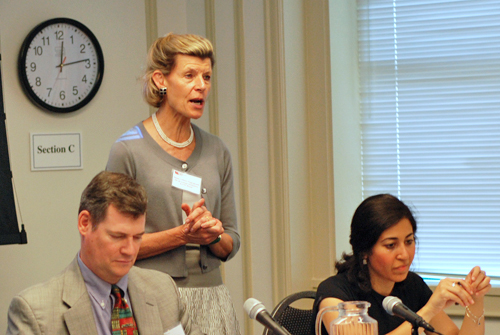 |
 |
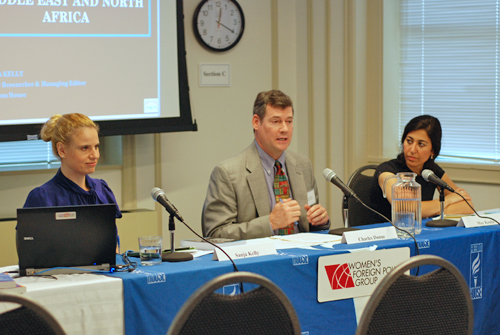 |
WFPG and Freedom House Board Member
Diana Negroponte
|
|
Speakers Sanja Kelly and May Kosba with
Moderator Charles Dunne
|
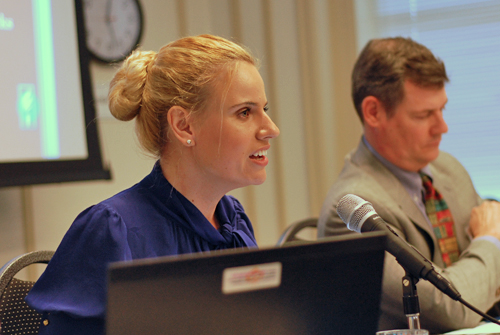 |
 |
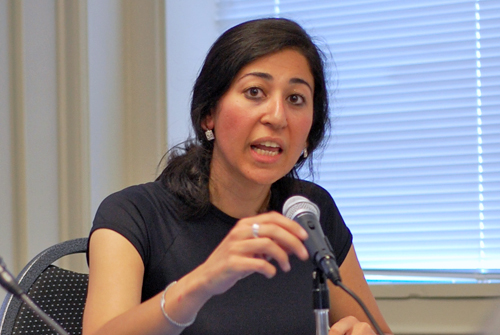 |
Speaker Sanja Kelly, Senior Researcher and
Managing Editor at Freedom House
|
|
Speaker May Kosba, Civic Health Fellow,
National Conference on Citizenship at Atlas Corp
|
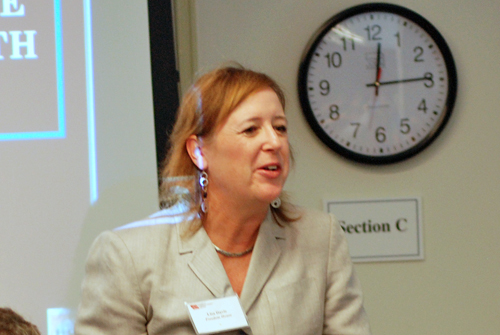 |
 |
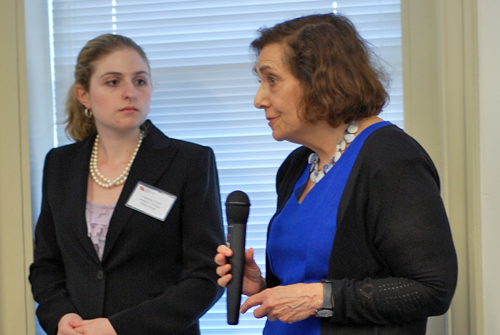 |
Deputy Director of Programs and Director of RIGHTS
Program Lisa Davis of Freedom House
|
|
WFPG President Patricia Ellis asks a question
|
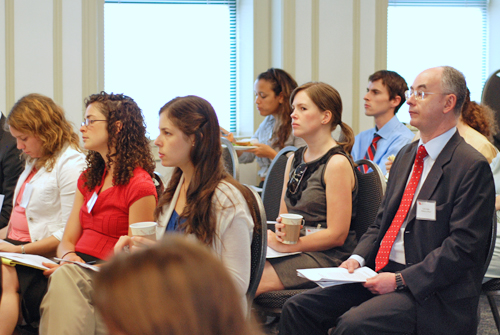 |
 |
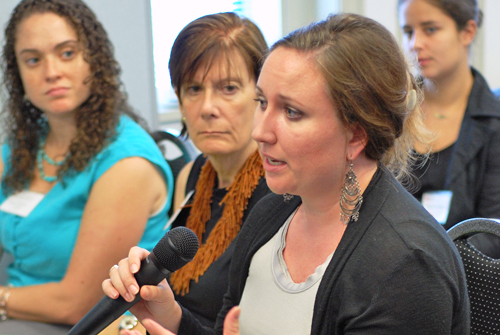 |
| |
|
|
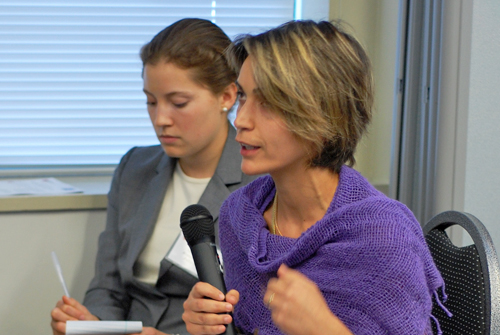 |
 |
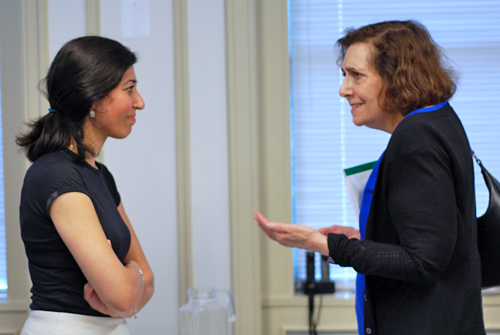 |
| |
|
|
|
|